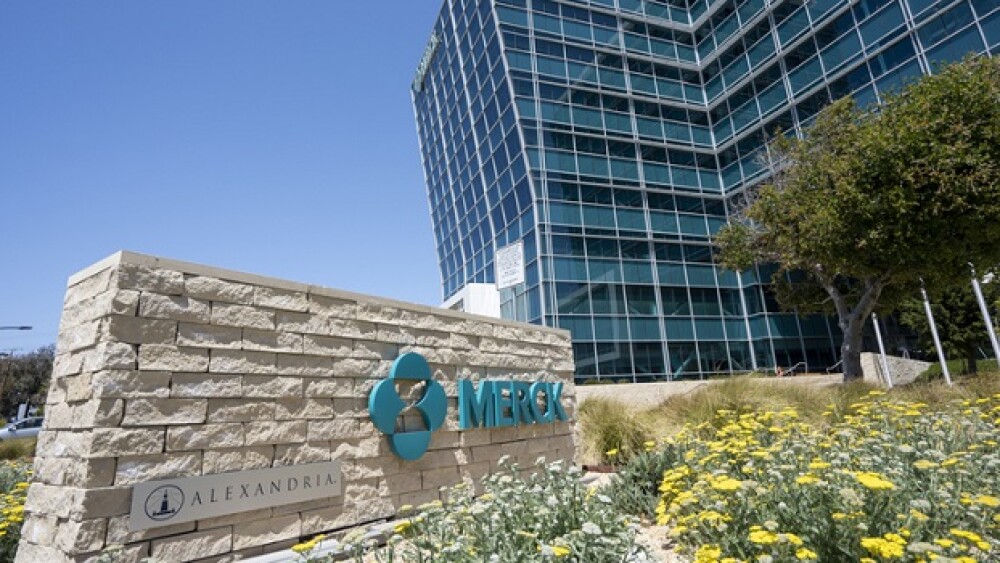The company reported results Friday from the KEYNOTE-811 trial in which the anti-PD-1 therapy took an important step toward FDA approval for rare esophageal tumors.
Pictured: A sign with the Merck logo surrounded by yellow flowers in front of a glass building / iStock, hapabapa
Merck notched another success for Keytruda Friday, as the blockbuster drug met one of its primary endpoints in a Phase III trial for patients with a rare cancer of the esophagus. The results mark an important step toward full approval of the drug in this indication.
The FDA in May 2021 granted Keytruda, in combination with trastuzumab, fluoropyrimidine- and platinum-containing chemotherapy, accelerated approval for the first-line treatment of patients with locally advanced unresectable or metastatic HER2-positive gastric or gastroesophageal junction (GEJ) adenocarcinoma, based on tumor shrinkage data.
With Friday’s announcement of positive results from the KEYNOTE-811 trial, Merck is working with the FDA to update the current indication for Keytruda “to those patients whose tumors are PD-L1 positive,” Scot Ebbinghaus, vice president of global clinical development at Merck Research Laboratories, said in a statement.
Keytruda, which brought in $20.9 billion in sales last year, has gained several new indications since its original approval. Most recently, the FDA approved it as an adjuvant treatment for non-small cell lung cancer and in combination with Seagen’s Padcev in first-line bladder cancer. The drug is being tested in some 1,600 different trials across a range of cancers and treatment settings.
David Adam is a freelance science journalist based in the UK. Reach him at davidneiladam@gmail.com.





